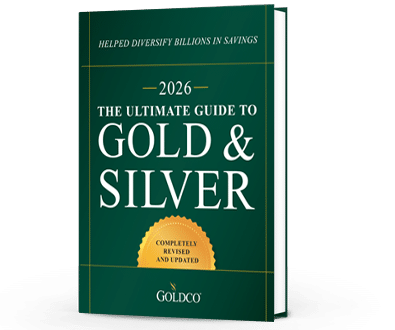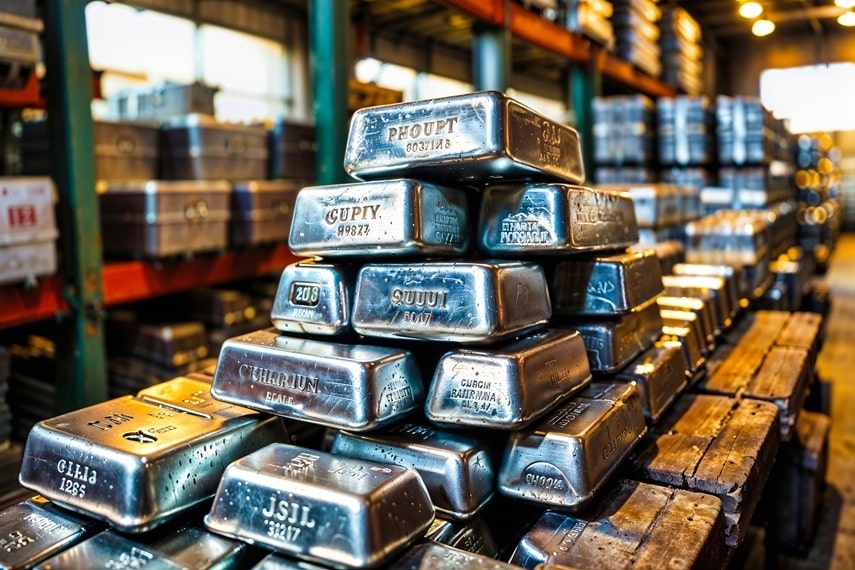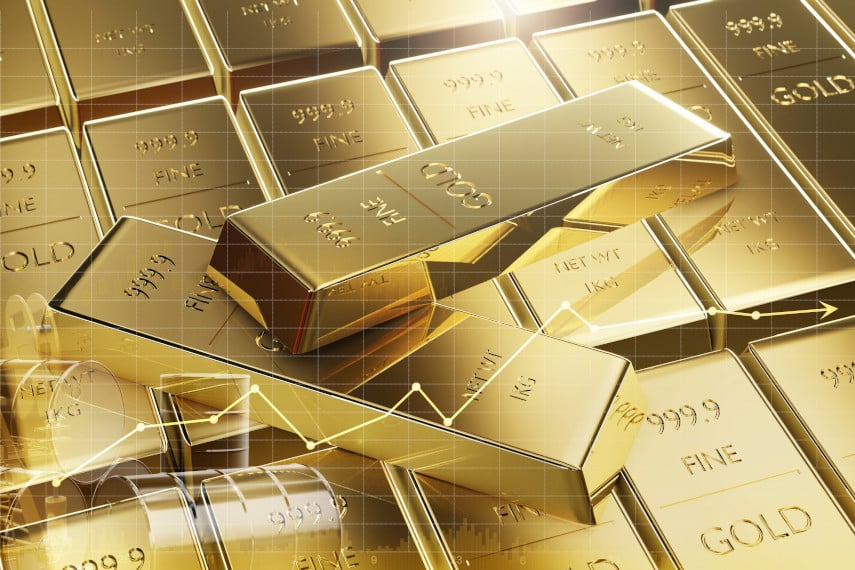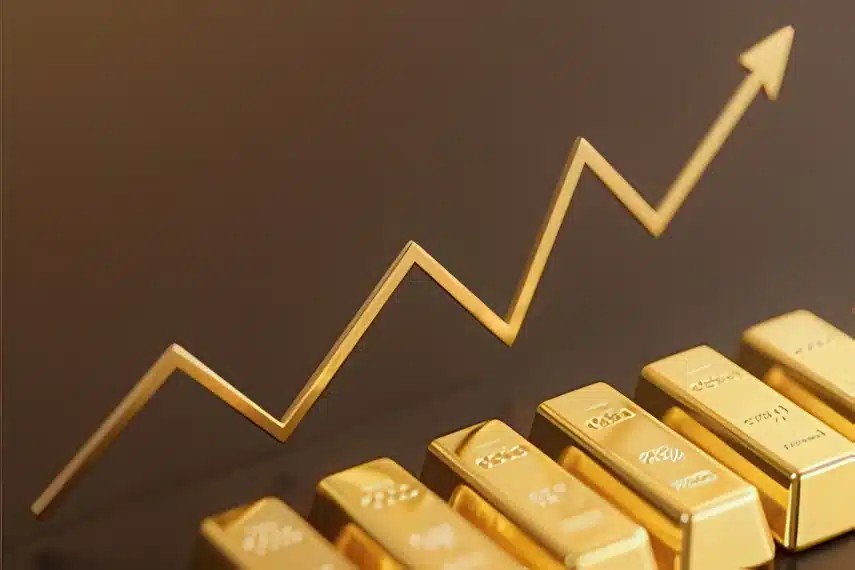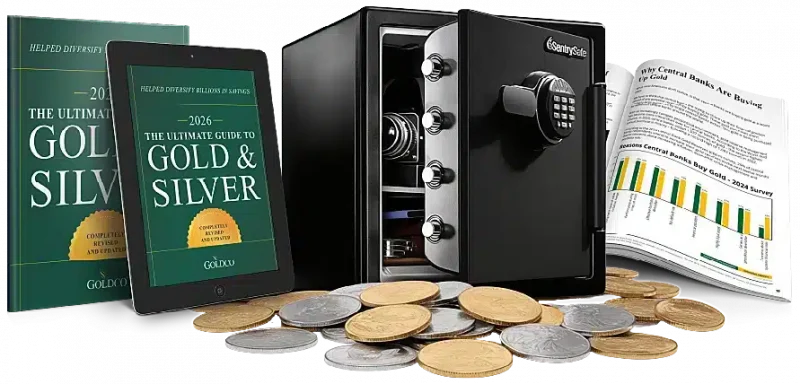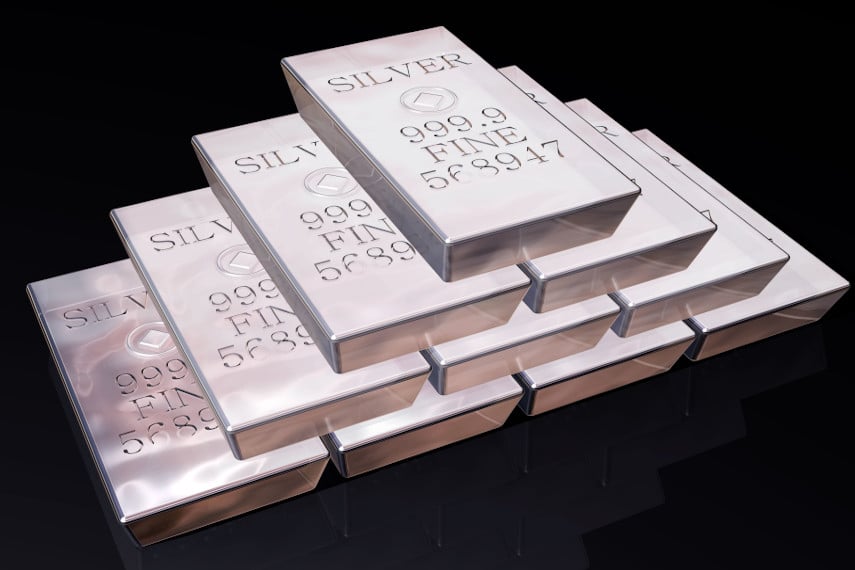
In the world of precious metals there are generally two types of investors: those who want to hold and own the metals themselves, and those who just want to benefit financially from ownership of metals. That has given rise to a kind of bifurcated precious metals market, one half of which caters to physical metal investors and the other half which caters to “paper” metal investors.
Physical investors are those who want to hold physical metals themselves. Whether they’re hoarding gold and silver coins inside a dresser drawer, stashing coins in a safe deposit box, or investing in physical precious metals though a gold IRA or silver IRA, these investors know that unless you own a physical, tangible asset, your ownership claim could be tenuous.
On the other hand you have paper investors who are more than happy to invest in shares. Sometimes they’ll invest in shares of gold and silver mining stocks. Other times they’ll invest in precious metals exchange-traded funds (ETFs). But in most cases they don’t actually want to own or hold the underlying metal.
This has led to speculation that there’s a great divergence between the physical market for precious metals and the paper market for precious metals. And with recent movements in the silver market, we could be on the verge of an explosion of the silver price if the relationship between physical silver and paper silver breaks down.
Not Enough Physical Silver to Cover Paper
Former US Mint Director Ed Moy commented over a month ago that there was soon going to be a divergence between the physical precious metals market and the paper market. He pointed to the fact that many large institutional investors that invest in gold and silver don’t actually invest in the physical metals. They invest in derivatives such as futures, betting that the gold price or the silver price will move up or down, in many cases down.
As those contracts expire, they cause changes in the prices of gold and silver as investors have to purchase metals to cover their contracts. As Moy pointed out, as more and more of those short contracts expire, the result should be an increase in the price, as less paper silver in the form of futures is hanging out there suppressing the silver price. As it stands right now, the amount of nominal derivatives of silver in existence far exceeds the amount of physical silver able to be delivered. At some point, something’s got to give.
Shortages of Physical Silver
What Moy probably didn’t anticipate was just how quickly shortages of physical silver would show up in the market. It all started a couple of weeks ago as the US Mint announced to disappointed customers that it would have to postpone sales of some of its popular silver coins. As the Mint stated, the “global silver shortage has driven demand for many of our bullion and numismatic products to record heights.” The Mint then clarified a week ago that by “global silver shortage” it meant solely a shortage of silver blanks that it uses to mint its coins.
But if the Mint’s suppliers are facing a shortage of silver blanks, doesn’t that mean that there’s a shortage of physical silver in the market? After all, silver is readily available anywhere in the world, and all it takes to make blanks is to source silver, melt it down to the proper alloy, then create the blanks. It’s a process that happens every day and that has happened for years. So if coin blank suppliers are suddenly unable to provide blanks to the Mint, it has to be the result of a widespread shortage of physical silver in the market.
Supposedly this problem isn’t one that is unique to the US Mint either, as mints around the world are facing difficulty in sourcing gold and silver to mint their coins. Of course, the easy solution to a shortage of physical metal is to raise the price you’re offering to buy the metals. That brings a whole bunch of silver and gold out of the woodwork, from silverware to jewelry to Grandma’s old junk coin hoard. But that would result in a rise in the silver price, which government mints want to try to avoid.
As a result, they decide to sit on their hands and allow a shortage to occur. But as the shortage occurs and intensifies, it sets off panic among investors who hear about the silver shortage. And that could boost demand even higher, setting off a self-fulfilling round of price increases.
The long and the short of it is that there just isn’t enough physical silver available today at existing spot prices. If you really want physical silver, you’re going to have to pay for it, and expect to pay a hefty premium to the spot price.
Where Will Silver Go Next?
The only question that remains is when the final break between paper silver and physical silver will occur. At some point the fact that physical silver is in short supply and unobtainable at spot price is going to have to result in a change in the spot price to reflect the reality of the market price. And when that happens, silver investors may be in for a treat.
This speculation about the silver market isn’t new. But with demand for silver pushing to new highs, and potentially even eclipsing previous demand, we could be on the verge of a new bull market for silver. Silver is already trading well higher than it was last year, and it wouldn’t take much to push it towards its all-time high price.
In fact, with silver currently trading at nearly $28 an ounce before a financial crisis or stock market crash, it could go far higher once the next crisis occurs. If silver tripled in price it would still be a bargain compared to gold, but that kind of gain would be a tremendous benefit to silver investors.
If you want to take advantage of the benefits of owning physical silver, one popular way of doing that is through a silver IRA. A silver IRA allows you to invest in physical silver coins or bars, while still enjoying the same tax advantages as any conventional IRA retirement account. And if you have existing retirement savings in an IRA, 401(k), TSP, or similar account, you can roll over or transfer those assets into a silver IRA without tax consequences.
With silver poised to make a great run over the next few years, now is the time to start thinking about investing in the white metal. To learn more about how silver can benefit you, contact the experts at Goldco today.

